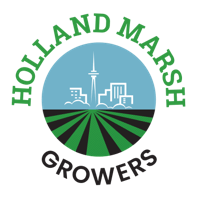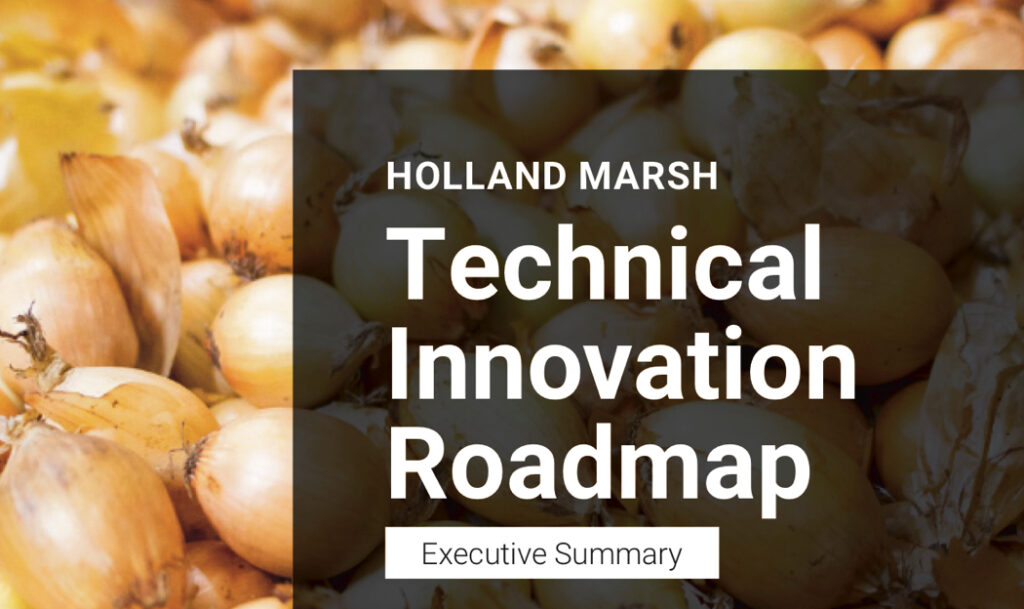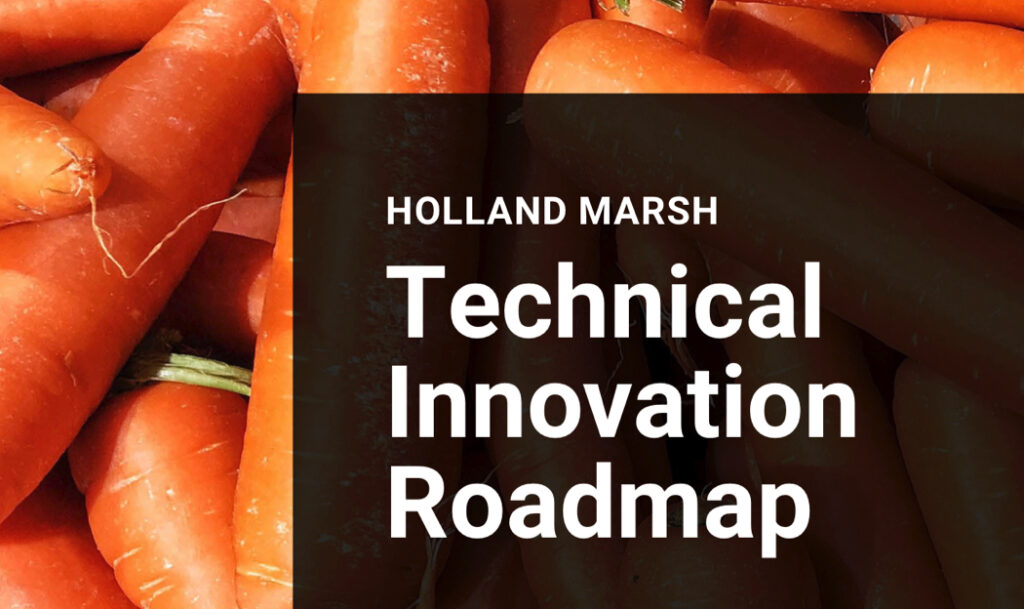Welcome to the Holland Marsh Growers' Association
Holland Marsh Tech Innovation Roadmapping Project, 2021
Background
In 2018 the Labour Market Forecast found that the shortage of labour cost Canada’s agri-food sector $2.9 billion in lost sales. The COVID-19 pandemic has amplified these existing labour challenges within the agri-food sector due to the labor-intensive nature of many farms and food processors.
There is a pressing need to make innovative changes to the way agri-food businesses operate to address the way in which COVID-19 is transmitted in the vegetable production sector, the risk factors present in agri-food operations and reduce the impact to human health and safety while also influencing labour productivity to respond to the chronic labour issues within the Sector.
Project Objectives
This Project falls within the Technology Innovation stream of the Agri-Food Prevention and Control Innovation Initiative under the Supply Chain Assistance Program for Agri-Food and Agri-Products to support the Sector’s capacity to continue to supply safe, high-quality and nutritious food. The Project contributes to the following outcomes of the initiative:
- Inform businesses of Innovative Technologies that may reduce the risk of COVID-19 exposure of agri-food workers in the workplace
- Promote adoption and awareness of Innovative Technologies applicable to the Sector that reduce risk of COVID-19 transmission if implemented in the Sector and also have co-benefits to help address labour challenges faced by the Sector.
The Project aligns with the Prevention, Control and Outbreak Support Strategy for COVID-19 in Ontario’s Farm Workers that was launched on November 16, 2020, and supports this strategy’s objectives and guiding principles:
- Prevent and contain COVID-19 outbreaks in agri-food workplaces;
- Protect the health and wellness of agri-food workers while respecting their rights and freedoms; and
- Maintain sustainability and viability of agri-food sector.
In Quarter 1, 2021, the team researched and evaluated available innovative technologies that would relate to the local sector. Primary data was collected through a combination of an online survey, virtual focus groups and telephone interviews.
When asked to pick one improvement that would significantly support their business the most common response was automated equipment. Based on responses from the survey, investment in technology would potentially see a reduction in labour requirements of 33%.
The research explored the barriers to adopting new technology/innovation and found that financial constraints, availability of technology and infrastructure to support it are all barriers to investment in innovation and technology.
Through the engagement with industry, it became evident that three elements will be essential for successful implementation of new technologies and innovations in the industry: Strategic Planning, Access to Technology and Financial Capacity/Support.
Read The Report

The Project is funded in part by the Ontario Ministry of Agriculture, Food and Rural Affairs.


